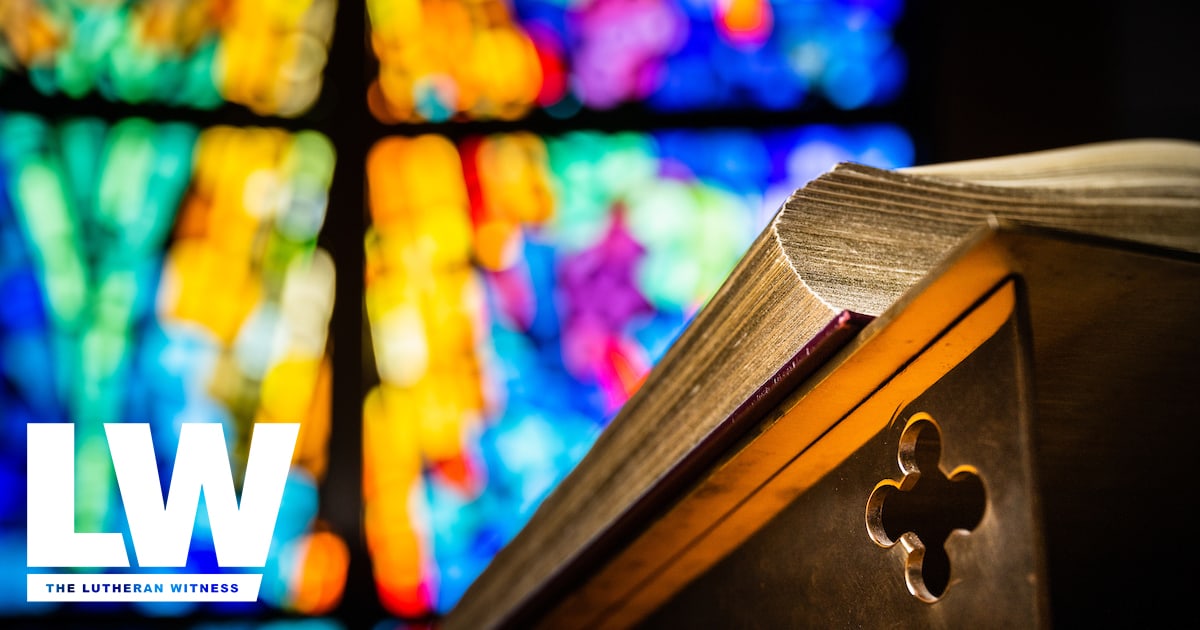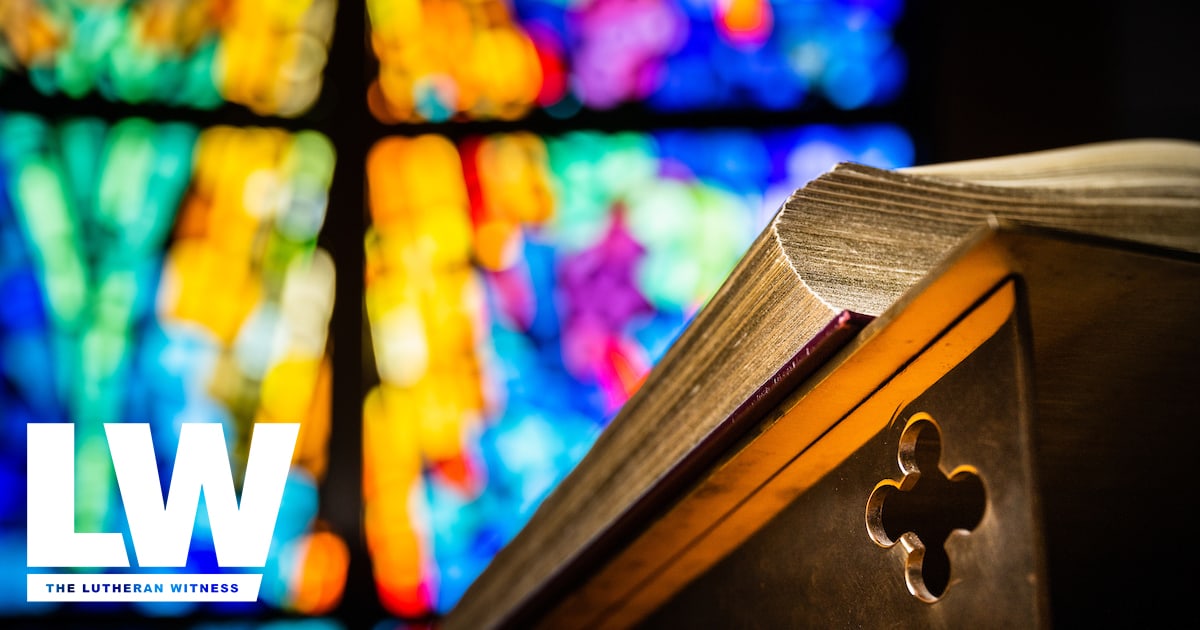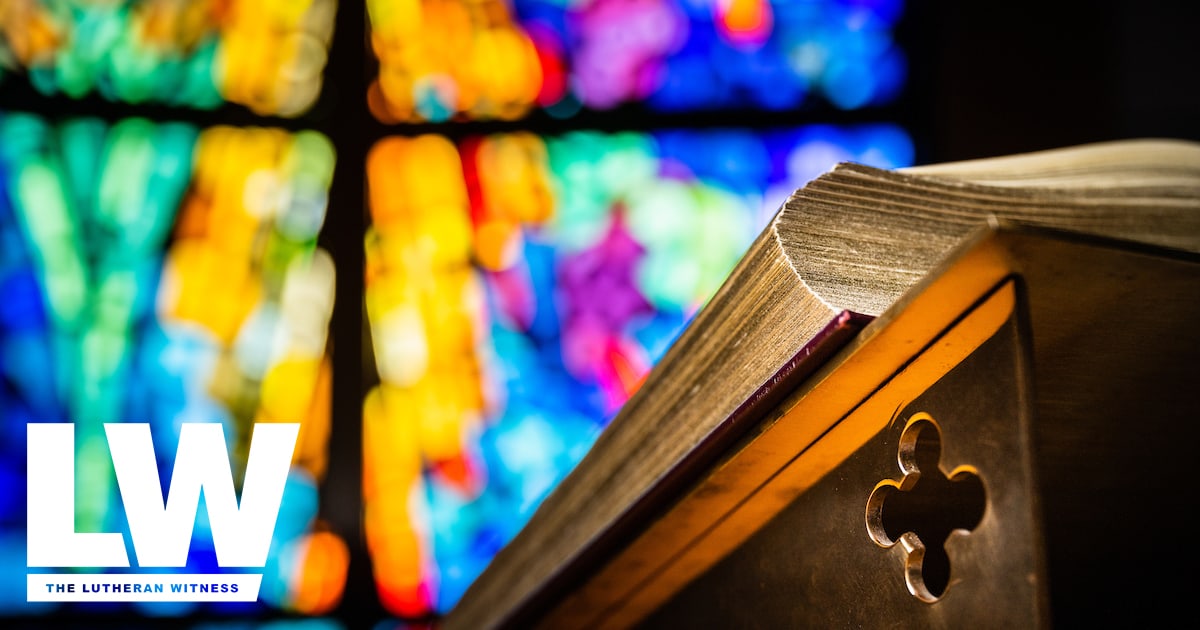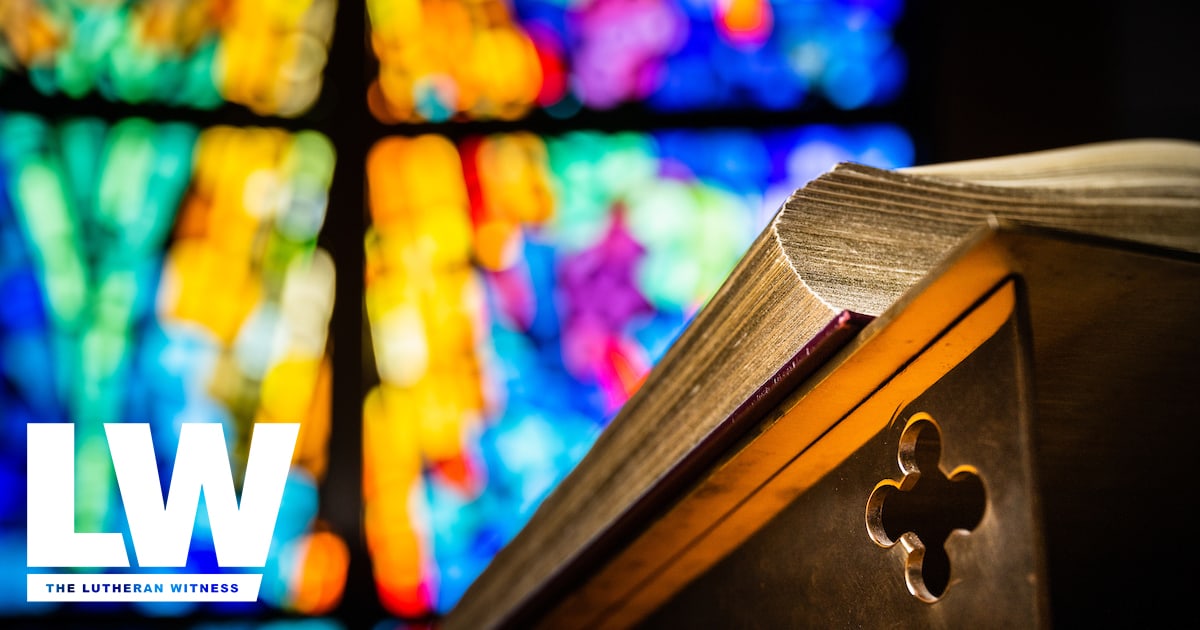
By Any Other Name
If anything goes in our culture, why are public apologies still so prevalent?

If anything goes in our culture, why are public apologies still so prevalent?

by John Murphy Ball St. Patrick’s Day has little liturgical significance. Outside of Ireland, it isn’t even a national holiday–I don’t know anyone who gets the day off. However, if there was ever a man who deserved to have a day named in his honor, it is Patrick. He was a Christian hero of incredible

In the midst of a weak economy and unstable foreign relations, not to mention a country increasingly unwelcoming of the Lutheran faith, it can sometimes feel like there is little hope for the church. President Harrison reminds of Christ’s love and the strength that is ours in Him.

The story, from Daniel chapter 3, of Shadrach, Meshach and Abednego and the burning fiery furnace is not included in the Scripture readings appointed to be read on any Sunday of the Church Year. As a result, it seldom serves as a text for sermons. Most of us are familiar with the story either from Sunday School lessons or from our personal devotional readings. But it is a story that is most appropriate for each of us.

Thank you for revising the Witness. Now when it arrives in the mail, I take out the articles for further personal Bible study. I really appreciate the con-tributing pastors writing studies. What a positive change. Marge Staekler Whitewater, Wis. Read More Letters to the Editor Send letters to “Letters,” c/o The Lutheran Witness, 1333

by Rev. Ken Lampe A dog was sitting in a railway station inside a large crate. Obviously he was supposed to be sent somewhere, but no one put the crate on any of the trains. Finally, one passenger said to a clerk, “I don’t think I’ve ever seen a sadder dog. What’s the problem?” The

Kudos on the great articles that The Lutheran Witness has been cranking out the past few issues. It kind of snuck up on me how great this magazine is. Darren Harbaugh San Francisco, Calif. Read More Letters to the Editor Send letters to “Letters,” c/o The Lutheran Witness, 1333 S. Kirkwood Road, St. Louis,

“In the midst of life we are in death.” Supposedly whispered in Latin by a medieval monk after he saw a workman fall to his death, the timeless and eternal truth of those words also hits home via a Martin Luther hymn based on them. Rev. William Weedon considers their relevance to ashes placed on our foreheads just last Wednesday (March 9) and also reflects on the March 11 Japan earthquake and tsunami.

It was with joy that I read the “10 Minutes with Rev. Glenn F. Merritt.” As a member of his former congregation in Hamilton, Mont., it was good to catch up on what he has been doing since he left, knowing that [he is] working . . . in a part of the world where

Kudos to Dr. Albert Collver for his lucid exposition of our present emphasis on Witness, Mercy, Life Together. This theme promises to provide a strong framework, to fire our hopes and to sustain us in our efforts. Compliments are due, also, for the new look that the Witness is sporting. The first impression made is

The article by Albert Collver III on the threefold emphasis of the church (Jan ’11) was very insightful. The imagery is rich and the rationale is solid. However, I was disappointed by the omission of another vital component of the church’s emphasis. Didache or “teaching” was not mentioned anywhere in the article. The church’s role

It was good to see the “In Memoriam” included in the monthly Lutheran Witness with a bit of detail. Now we see only birth and death dates— like cold tombstones. How many of our not-computer-savvy are going to quickly go online to check out greater details on the death of a pastor or teacher? How